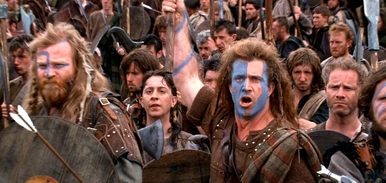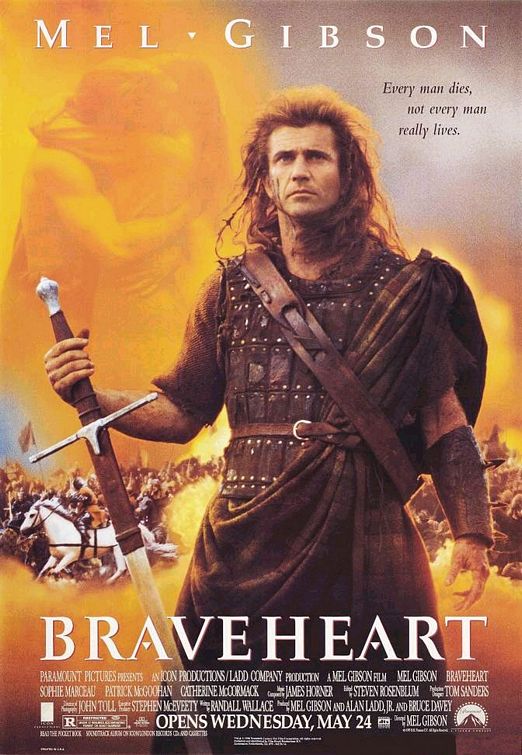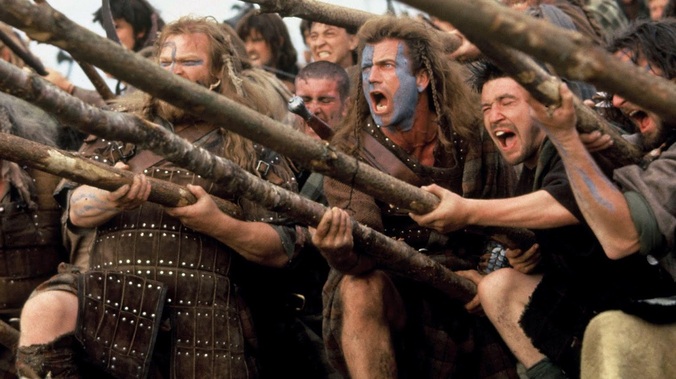|
It seems that Scottish independence may be at hand, and in time for the 20th anniversary of the filming of “Braveheart”.
As I have no reason to support or oppose it, I look on next week’s vote with indifference but also curiosity. On first thought, we might think that the “hard core of secessionism” would be “right-wing nationalist feeling”. We might think that the vote is a sign that “blood and soil patriotic sentiment” is still alive among Europeans (despite its being mostly faux-pas for many decades now). From what I understand,though, the Scottish National Party (SNP), behind secession, is a social democratic party, leading us to reject the above hypothesis.
What, then? |
The SNP is on the left, even of British politics, I understand, and completely rejects “blood and soil” thinking. Its policies are actively against that strand of political thought.
Right. So then. These 40%+ (or maybe over 50%) who are expected to vote “Yes” in the SNP’s secession referendum: What is their motivation? Pro-social-democratic politics? Huh? Then why not just stay in the UK?
Right. So then. These 40%+ (or maybe over 50%) who are expected to vote “Yes” in the SNP’s secession referendum: What is their motivation? Pro-social-democratic politics? Huh? Then why not just stay in the UK?
As I keep thinking about it, I come up with this: Might people vote for a party for reasons completely at odds with what that party believes? I think many do this in the USA. In other words, maybe lots of Scots were influenced by “Braveheart“, after all, to be implicit “Scottish nationalists” today yet they exist in a climate, today, in which “blood and soil nationalism” in the West is culturally relegated to something like the place devil worship would’ve had in the Middle Ages. The left-wing SNP and its drive for secession/independence allows people to express implicit “blood and soil” feeling without….stepping outside the bounds of social respectability.
About “Braveheart” specifically. I wondered how many of the voters in Scotland were young enough at the time to have been influenced by it as youth. This is what I come up with: Around 1.6 million of Scottish voters (37% of the voting pool)* were born after 1972, which means they were between ages 0 and 23 when Braveheart came out, young enough to have been profoundly moved/influenced by the movie during their youth if they saw it when it came out, or later on VHS, DVD, TV, etc., while still youth. Of course, some may never have seen it. Some would’ve seen it only much later, as full adults, so it may have made less of an impression. Others will not even be Scottish by ancestry (maybe of English ancestry living in Scotland [see here], and those of non-European ancestry outright). Of the hypothetical Scots who saw Braveheart in their youth and may have been influenced towards “implicit Scottish nationalism”, alas we’re probably only talking about one or two out of ten voters. This still may be enough to swing the referendum’s outcome, though.
(* – I calculate this as follows: Scotland has 5.3 million people, of whom around 1 million are under 18 or non-citizens. Of the 4.3 million voters, the average age is 41.5, meaning around 2.6 million on each side of that age. From the younger half, deduct the 1.0 million who are under-18 and foreigners, equals 1.6 million age 18-41.5).
About “Braveheart” specifically. I wondered how many of the voters in Scotland were young enough at the time to have been influenced by it as youth. This is what I come up with: Around 1.6 million of Scottish voters (37% of the voting pool)* were born after 1972, which means they were between ages 0 and 23 when Braveheart came out, young enough to have been profoundly moved/influenced by the movie during their youth if they saw it when it came out, or later on VHS, DVD, TV, etc., while still youth. Of course, some may never have seen it. Some would’ve seen it only much later, as full adults, so it may have made less of an impression. Others will not even be Scottish by ancestry (maybe of English ancestry living in Scotland [see here], and those of non-European ancestry outright). Of the hypothetical Scots who saw Braveheart in their youth and may have been influenced towards “implicit Scottish nationalism”, alas we’re probably only talking about one or two out of ten voters. This still may be enough to swing the referendum’s outcome, though.
(* – I calculate this as follows: Scotland has 5.3 million people, of whom around 1 million are under 18 or non-citizens. Of the 4.3 million voters, the average age is 41.5, meaning around 2.6 million on each side of that age. From the younger half, deduct the 1.0 million who are under-18 and foreigners, equals 1.6 million age 18-41.5).
(Note: There is a follow-on post to this one in post-229, “Scotland’s Secession Vote / Reminiscences of a Scottish Friend”).



